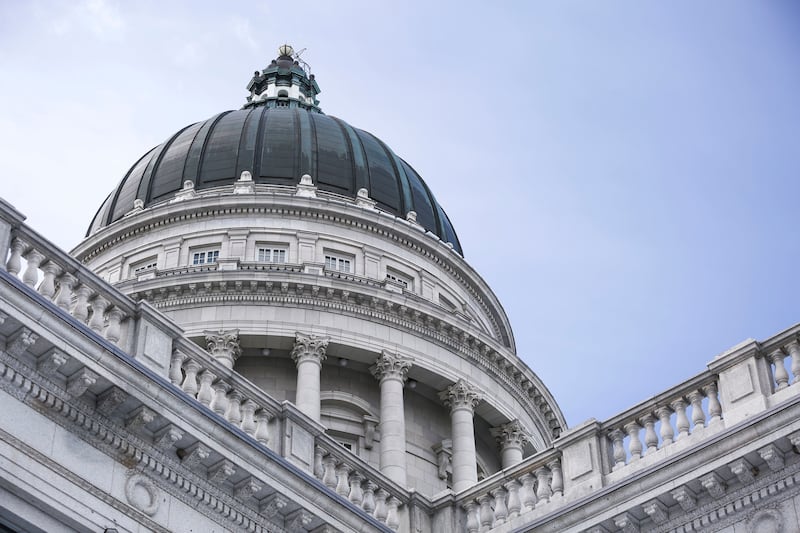SALT LAKE CITY — An attempt to institute new state rules governing the use of facial recognition technology ran into a buzzsaw of concerns from both legislators and local civil rights advocates Wednesday and failed to even get a vote from interim committee members.
The proposal from Sen. Daniel Thatcher, R-West Valley City, sought to place limits on certain law enforcement uses of new, computer-based facial recognition technologies while also requiring public disclosures by state agencies already using it. Thatcher noted the effort would codify a number of practices already in place but would also serve as a first step in filling a current legislative void in which the use of facial recognition software is not addressed or regulated.
The general consensus expressed by fellow legislators, however, was the effort would not go far enough to ensure personal privacy and Fourth Amendment protections against illegal searches and seizures.
Thatcher outlined that the state’s Driver License Division has been using facial recognition technology for nearly a decade, a move he said was adopted to help thwart fraudsters who were using fake documents to get secondary, state-issued licenses and identification cards to secure fake credit accounts and commit other identity crimes.
Now, Thatcher said every picture taken for the 2,000 or so driver’s licence applications processed every day by the license division gets compared with the existing statewide database of license photos. One clause in his legislative proposal would have required the division to start requesting consent from applicants to make that check.
“We take that picture and run it through to make sure the person with that face doesn’t already have a driver’s license,” Thatcher said. “I hope you would all agree that is a very important function of public safety.”
Some legislators, however, questioned what would happen if an applicant were to opt out of the consent, which Thatcher said would likely result in the state refusing to issue a license.
Rep. Phil Lyman, R-Blanding, said obligating applicants to consent to that photo search would not only be a violation of Fourth Amendment guarantees, but also a slippery slope that could lead to other unexpected outcomes.
“When you open that door, you open the door to a lot of other unintended consequences,” Lyman said.
Other members of the Government Operations Interim Committee expressed concerns about a lack of limits on access to the Utah driver’s licence photo database by law enforcement agencies, which currently does not require a warrant for a facial recognition search requests from those agencies, but only assurance of an active investigation. Since 2015, the state has run 3,284 facial recognition searches for federal agencies, 357 for out-of-state police departments and 263 for local law enforcement.
Thatcher’s bill, via an amendment that he wasn’t able to move on Wednesday, was also seeking to codify some regulations on the use of facial recognition software to conduct so-called “live scan” surveillance using facial recognition tools to search for and track individuals in real-time. The amendment would have required both a warrant and 72-hour limit on such practices.
He said he repurposed language from a bill Sen. Mike Lee, R-Utah is sponsoring, along with Sen. Chris Coons, D-Del. that is also aiming to put some limits on how facial recognition is deployed by law enforcers.
But even invoking Lee and a portion of his federal proposal failed to earn the support of committee members, who voted to adjourn the meeting without taking action on Thatcher’s proposal. But not before Marina Lowe, policy and legislative counsel for the American Civil Liberties Union of Utah, addressed the committee on behalf of both her organization and Connor Boyack, executive director of libertarian think tank Libertas Institute.
“It is our desire that this bill, as it stands right now, should not advance,” Lowe said. “I don’t think it’s good policy to simply codify something just to have it codified. We should strive to do the best to protect the privacy interests of Utahns.”
Lowe suggested an improved bill that addresses concerns raised by both committee members and civil rights advocates could find a path to successful passage.
“I would really urge this committee that we can do better,” Lowe said. “We can come up with a set of rules that I think we can all live by and all feel comfortable that our privacy is being protected.”


